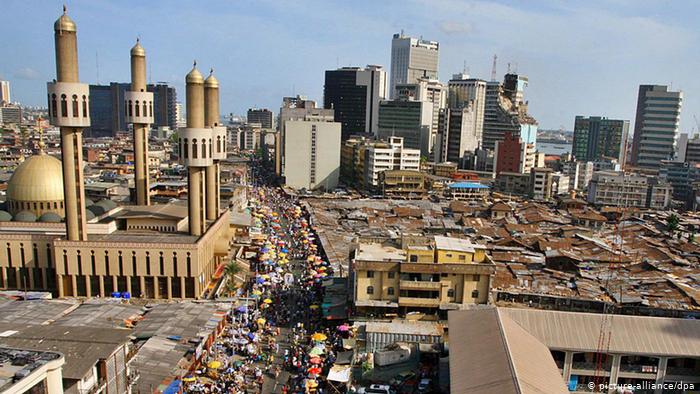Nigeria’s National Bureau of Statistics (NBS), on Friday reported a spike in the country’s inflation rate for the seventh consecutive month since December 2021, rising 0.84% higher than the 17.75% recorded in the same period of 2021, to 18.6% at the end of June 2022.
The latest increase is the highest in the 15 months since March 2021, when it stood at 18.17%, after which inflation in the country began a gradual but steady decline until November last year when it bottomed out at 15.40%, and began yet another rise. So far, the last three months of April, May and June have been the biggest jumps at nearly 1.0%, in what may be the impact of the ongoing war between Russia and Ukraine, two commodity rich nations, that has resulted in a growth in global commodity prices, especially grains and crude oil, driving inflation.
The increase, the bureau noted, was recorded in all measurement areas, while on a month-on-month basis, headline inflation rate increased to 1.82% within the period, 0.03% higher than the 1.78% recorded in May 2022.
The percentage change in the average composite Consumer Price Index for the 12 month period ending June 2022 over the average of that for the previous 12 months period was 16.54%, showing a 0.62% increase compared to 15.93% recorded in June 2021.
For the month of June 2022, the report noted that urban inflation rate increased to 19.09% (year-on-year), increasing by 0.74% compared to 18.35% recorded in June 2021. On a month-on-month basis, the urban inflation rate rose to 1.82% in June 2022, a marginal 0.01% increase, compared to the 1.81% rise in May 2022; just as in the corresponding 12-month average percentage change for the urban index stood at 17.09% in 2022, 0.58% higher compared to 16.51% reported in June 2021.
The rural inflation rate jumped to 18.13% year-on-year in June 2022, a 0.97% increase compared to 17.16% recorded in June 2021; while month-on-month the rural index rose to 1.81% in June 2022, up by 0.05% from the 1.76% rate recorded in May 2022. In the corresponding 12-month, average percentage change for the rural inflation rate in June 2022 inched 0.66% higher 16.02 percent, from 15.36% recorded in June 2021.
The composite food index galloped to 20.6% on a year-on-year basis in the period under review; while rate of changes in average price level declined by 1.23%, down from 21.83% in June 2021.
“The rate of changes in food prices compared to the same period last year was higher due to higher foods prices volatility caused by COVID 19. This rise in the food index was caused by increases in prices of Bread and cereals, Food products, Potatoes, yam, and other tubers, Meat, Fish, Oil and fat, and Wine,” NBS noted.
MoM, the food sub-index, it said, increased to 2.05% in June 2022, up by 0.03 percent points from 2.01 percent recorded in May 2022; even as average annual rate of change of the Food sub-index for the twelve-month period ending June 2022 over the previous twelve-month average is 18.62 percent, which is 1.10% decline from the 19.72% average annual rate of change recorded in June 2021.
Across the states of the federation, all items inflation was at its peak in Bauchi, where at the end of June 2022, it stood at 21.99%; followed by Kogi, 21.37%; and Ebonyi, 20.73%.
Adamawa, Sokoto and Jigawa, however occupied the bottom of the time with 16.14%; 16.31%; and 16.37% respectively, recording the slowest rise in headline Year-on-Year inflation.
On a MoM basis during the period, the highest increases was seen in Kogi with 2.69%; Ondo, 2.65%; while Kaduna followed with 2.61%;
On a MoM basis during the period, the highest increases was seen in Kogi with 2.69%; Ondo, 2.65%; while Kaduna followed with 2.61%; just as FCT Abuja recorded the slowest growth in inflation at -0.03%; followed by Adamawa’s -0.26%; and Sokoto, 0.79%.
In June 2022 also, at 25.62%, food inflation YoY was highest in Kwara; followed by neighbouring Kogi with 24.81%; and Rivers, 24.34%; while Jigawa with 16.01% was at the bottom of the table; followed by Sokoto, 16.24%; and Kaduna, 17.75%.
MoM food inflation in June 2022, however, saw Ebonyi atop the table with 3.52%; followed by Bayelsa, 3.27%; and Ondo, 3.25%; while Sokoto recorded the slowest at 0.11%; Taraba, 0.94%; and Adamawa, 1.22%.
Reacting to the report, analysts at Cordros Capital Limited, a Lagos-based investment banking group noted that the latest inflation figure is in line with expectations in their May inflation note, where they projected headline inflation will notch higher in June amidst the base effects from the prior year.
“In addition, our prognosis was hinged on (factors such as) the high food demand-supply gap as planting season was underway, PMS shortages, and elevated diesel and gas prices.
“Consequently, in line with our expectations, the headline inflation rose by 89bps to 18.60% y/y in June – the highest print since January 2017 (18.72% y/y). The outturn is in line with Cordros’ estimate (18.61% y/y) and 10bps higher than Bloomberg’s median consensus estimate (18.50% y/y). On a month-on-month basis, consumer prices increased by 4bps to 1.82%.








